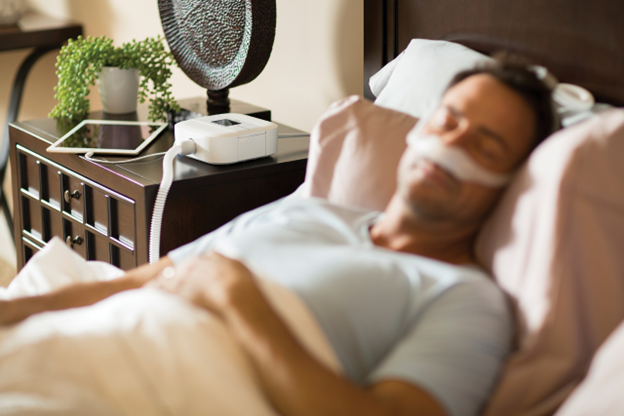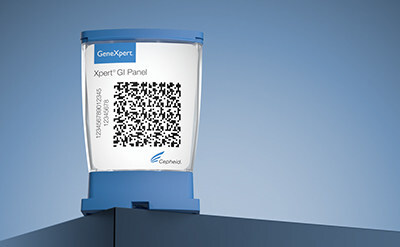The US Food and Drug Administration (FDA) is alerting patients and healthcare providers of an emerging safety issue involving Philips Respironics’ DreamStation 2 CPAP machines used to treat or manage obstructive sleep apnea. A safety communication was issued to inform the public of reports involving overheating issues with the machine, some of which cited patient injuries, and to provide safety recommendations for patient use, including carefully monitoring machines for signs of overheating.
The regulatory body had recently received medical device reports (MDRs) linked to incidents involving Philips Respironics’ DreamStation 2 CPAP machines, including concerns such as fire, smoke, burns and indications of overheating during use. The FDA is actively engaged in ongoing discussions with the company to formulate and implement mitigation strategies for addressing this safety issue, and updates for the public will be provided as the situation unfolds.
The safety communication also notes that some DreamStation 2 CPAP machines were distributed as replacements for recalled DreamStation 1 CPAP machines which had degraded sound abatement foam in the machines. The regulatory agency currently does not attribute the safety issues to the machine’s foam but is exploring the possibility of an electrical or mechanical malfunction as the potential cause.
“The FDA is committed to assuring this new safety issue is resolved expeditiously. We will continue to monitor the company’s handling of this, among other safety issues, to ensure they take appropriate steps to mitigate the risk to patients,” said Jeff Shuren, MD, JD, director of the FDA’s Center for Devices and Radiological Health, in the FDA’s news release. “We share the public’s concerns regarding the new and continued safety issues of CPAP machines and certain recalled medical devices manufactured by Philips. Addressing these safety concerns remains a top priority for the FDA.”
XTALKS WEBINAR: Impacts of the New IVD Regulation (IVDR) for Manufacturers and Users
Live and On-Demand: Tuesday, January 9, 2024, at 10am EST (4pm CET/EU-Central)
Register for this free webinar to learn how the new In Vitro Diagnostic Regulation (IVDR) impacts manufacturers and users of diagnostic devices.
A CPAP machine employs gentle air pressure to maintain open airways during sleep, a standard treatment for obstructive sleep apnea (OSA) that causes interruptions or pauses in breathing, often because the throat or airways briefly collapse, or something temporarily blocks them. It is used at home and in clinical settings.
A CPAP machine’s compressor (motor) generates a continuous stream of pressurized air that travels through an air filter into a flexible tube. This tube delivers purified air into a mask that is sealed around a person’s nose or mouth. As they sleep, the airstream from the CPAP machine pushes against any blockages, opening the airways so the lungs receive plenty of oxygen. The patient’s breathing doesn’t pause without anything obstructing this oxygen flow. As a result, they don’t repeatedly wake up to resume breathing.
The FDA recommends that patients, caregivers and healthcare providers adhere to the manufacturer’s instructions for safe usage. The recommendation includes placing the machine on a stable, level surface, and avoiding placement on carpets, fabric, or other flammable materials. Additionally, proper maintenance involves:
- Meticulous cleaning
- Regularly emptying the machine’s water reservoir
- Allowing the heater plate and water tank to cool for at least 15 minutes before removing the tank to reduce the risk of burns
Direct contact with the heater plate, heated water, or the humidifier water tank pan can pose a burn hazard.
Further, it is advised that users check the machine before and after every use for odd smells or changes in appearance — issues may only be visible when the machine is running, so customers should inspect before going to bed. In case any issue is detected, the machine should not be used.
Philips Respironics’ DreamStation 2 CPAP machine is priced at $800 to $900. The price doesn’t include the mask, tubing and other accessories. Depending on the features of the machine, the price can go up. Most insurance companies cover part of the cost of CPAP machines if prescribed by a doctor.
Other CPAP-Related Recalls
On November 16, 2023, SoClean announced a voluntary recall for SoClean2 and SoClean3 equipment used to clean, sanitize, or disinfect CPAP devices and accessories intended to help reduce potential health risks of exposure to ozone gas after the use of a SoClean device.
In June 2021, Philips issued a voluntary recall for millions of its CPAP, BiPAP (Bi-Level Positive Airway Pressure) and mechanical ventilator devices because of degraded polyester-based polyurethane (PE-PUR) sound abatement.
In September 2022, Philips Respironics also recalled specific masks for BiPAP and CPAP machines due to safety issues with magnets that could affect specific implanted medical devices or metallic objects in the body.












Join or login to leave a comment
JOIN LOGIN